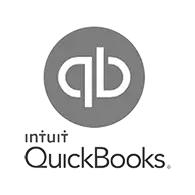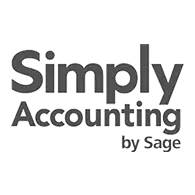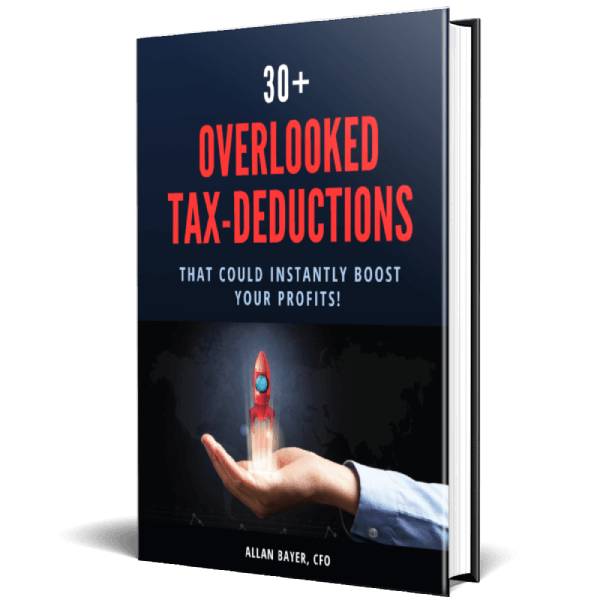
Your Small Business Accountant in Austin
We can potentially minimize your tax burden by $10k to as much as $1M, as well as, help you to grow your business profitably.
Serving the Austin area’s 1,638,716 residents and 109,465 businesses spanning Downtown Austin, Tarrytown, Cherrywood, and beyond for all of your Austin Small Business Accountant needs.

Trusted by Austin Business Owners
Frustrated with Your Current Austin Accountant?
If you’re reading this page right now, then you’re probably:- Fed-up with your accountant failing to return your calls
- Concerned that delinquent financial reporting will jeopardize your financing
- Aware that your Small Business Accountant in Austin has dropped the ball with the IRS, your bonding company, or insurer
- Uncertain what your accountant is or isn’t working on
Meet Your Partners

Allen Ming
Practice Principal

David Puotinen
Tax Manager

Belford E. Voegelin
Senior Associate

Jivanne Foster
Senior Accountant
Three Reasons to Work With Us

A Focus on Owner-Managers
Our practice is organized to serve private companies and their Owners. We offer exceptional service that is focused on increasing profitability, preserving wealth from tax and increasing your net worth.

Proven Track Record
We’ve been consulting Business Owners for over 15 years. Small Business Accountant Austin is dedicated to your success and treats your business as if it were our own.

Expert Solutions to Your Problems
New problems arise every day for Business Owners. We offer Partner-level attention and implement tailored solutions to your tax, accounting, and other business problems.
We Strive for World Class Service
Switching Accountants Is Easier Than You Think
Switching accountants only seems like a major pain in the butt…
But in reality, it’s a brief communication with your current accountant:
“It’s time for a new direction. Please send my books over to Accountant Partners. Thank you for your service.”
Your accountant is professionally mandated to provide your books to whomever you request they go to. It’s really that easy.
Book Your Free Consultation
If you’re looking to grow your business and willing to listen to new and better ideas, then we’re the trusted Small Business Accountant for you.
During our initial consultation, we’ll review your immediate needs and provide a course of action with a fixed-fee quote (no surprise bills here).
Book your free consultation now by calling 1 (512) 540-3553 or book online.

The Only CPA Firm with a Pricing Guarantee
Our pricing guarantee is simple: If we don’t quote you upfront for the work, we don’t expect you to pay. Whether that’s in our first engagement with you, or it’s in 20 years from now.
You’ll never receive an unpleasant surprise in our invoicing.
Our guarantee makes it a no-brainer to work with Small Business Accountant Austin.
Bookkeeping Service Toronto
68 Ontario St, Toronto, ON M5A 2V1, Canada
Map
Bookkeeping Service Vancouver
5 E 6th Ave, Vancouver, BC V5T 1J3, Canada
Map
Bookkeeping Service Mississauga
120 Traders Blvd East, Mississauga, On L4Z3K7
Map
Bookkeeping Service San Antonio
9800 Lorene, San Antonio, TX 78216, United States
Map
Bookkeeping Service Dallas
5065 Amesbury Dr # 308, Dallas, TX 75206, United States
Map
Bookkeeping Service Houston
6650 Corporate Dr, Houston, TX 77036, United States
Map
Bookkeeping Service Austin
6836 Austin Center Blvd Ste 260, Austin, TX 78731, United States
Map
Bookkeeper Toronto
68 Ontario St, Toronto, ON M5A 2V1, Canada
Map
Bookkeeper Vancouver
5 E 6th Ave, Vancouver, BC V5T 1J3, Canada
Map
Bookkeeper Mississauga
120 Traders Blvd East, Mississauga, On L4Z3K7
Map
Bookkeeper San Antonio
415 Shannon Lee St, San Antonio, TX 78216
Map
Bookkeeper Dallas
5065 Amesbury Dr # 308, Dallas, TX 75206, United States
Map
Bookkeeper Houston
6650 Corporate Dr, Houston, TX 77036, United States
Map
Bookkeeper Austin
6836 Austin Center Blvd Ste 260, Austin, TX 78731, United States
Map
Small Business Accountant Toronto
4 Collier St, Toronto, ON M4W 2G9
Map
Small Business Accountant Los Angeles
120 W Wilson Ave, Glendale, CA 91203
Map
Small Business Accountant New York City
304 Community Dr Unit 2A, Manhasset, NY 11030
Map
Small Business Accountant San Diego
888 Summer Moon Rd, San Marcos, CA 92078
Map
Small Business Accountant Atlanta
212 Amy Overlook, Atlanta, GA 30349
Map
Small Business Accountant San Francisco
2407 Lincoln Way, San Francisco, CA 94122
Map
Small Business Accountant San Jose
980 Fair Ave, San Jose, CA 95122
Map
Small Business Accountant Phoenix
3225 W Galvin St, Phoenix, AZ 85086
Map
Small Business Accountant Chicago
3940 N Nordica Ave, Chicago, IL 60634
Map
Small Business Accountant Detroit
13216 Crofton Ave, Detroit, MI 48215
Map
Small Business Accountant Miami
1401 SW 22nd St, Miami, FL 33145
Map
Small Business Accountant Denver
7755 E. Quincy Avenue #59, Denver, CO 80237
Map
Small Business Accountant Charlotte
1206 Georgetown Dr, Charlotte, NC 28213
Map
Small Business Accountant Columbus
462 E Clearview Ave, Columbus, OH 43085
Map
Small Business Accountant Sacramento
4830 Watt Ave, Unit 15, North Highlands, CA 95660
Map
Small Business Accountant Austin
4711 E Riverside Dr, Austin, TX 78741, United States
Map
Small Business Accountant Oklahoma City
338 Whispering Ln, Newcastle, OK 73065
Map
Small Business Accountant San Antonio
415 Shannon Lee St, San Antonio, TX 78216
Map
Small Business Accountant Ottawa
6 Young Road, Ottawa, ON K2L 2X2
Map
Small Business Accountant Dallas
5065 Amesbury Drive Suite 308, Dallas, TX 75206
Map
Small Business Accountant Mississauga
2175 Dunwin Dr, Mississauga, ON L5L 1X2
Map
Small Business Accountant Vancouver
755, Burrard St,Vancouver, BC V6Z 1X6
Map
E-commerce Accountant Toronto
68 Ontario St, Toronto, ON M5A 2V1, Canada
Map
E-commerce Accountant Vancouver
5 E 6th Ave, Vancouver, BC V5T 1J3, Canada
Map
Amazon Accountant Toronto
68 Ontario St, Toronto, ON M5A 2V1, Canada
Map
Amazon Accountant Vancouver
5 E 6th Ave, Vancouver, BC V5T 1J3, Canada
Map
Shopify Accountant Toronto
68 Ontario St, Toronto, ON M5A 2V1, Canada
Map
Shopify Accountant Vancouver
5 E 6th Ave, Vancouver, BC V5T 1J3, Canada
Map
Business Owner’s Definitive Guide to Growth, Profits, & Tax Minimization By 10 Year+ Accountant Partners.
It doesn’t matter what type of customer you are – whether you are a small business, a giant corporation, or a private party – chances are that at some point, you will come to rely on the services of a Small Business Accountant. Is now that time? Moreover, how will you know when it’s right to hand your situation over to professional hands?
You’ve come to the right place for the answer to those questions and more. Read on to learn about what you should know before you hire a Small Business Accountant.
It doesn’t matter what type of customer you are – whether you are a small business, a giant corporation, or a private party – chances are that at some point, you will come to rely on the services of an accountant. Is now that time? Moreover, how will you know when it’s right to hand your situation over to professional hands?
You’ve come to the right place for the answer to those questions and more. Read on to learn about what you should know before you hire a Small Business Accountant.
Reasons You Might Need to Hire an Accountant
You know that most people use the services of an accountant, and for a wide variety of reasons, but do your circumstances warrant the help of a professional? And how do you know when it’s time to pick up the phone and reach out for help? Consider these reasons you might hire any Small Business Accountant:
- You’re not a professional. To put it simply, you don’t have the knowledge, experience, or skill set of an expert. If you want to know for certain that your money matters are in the most competent hands, then your only option may be to recruit a Small Business Accountant.
- You need some advice. You may not be aware of this, but bookkeeper and accountant do much more than just help you with the practical aspects of completing paperwork and filing financial transactions. They are also responsible for educating their clients on all kinds of money matters, from tax and finance law to investment banking.
- You’re not equipped to catch all of your mistakes. Chances are, you made at least one or two mistakes while filling out your tax forms. No matter how tiny those mistakes may be, they can end up costing you a lot of money down the line. Your best defense against your own mistakes is to hire a professional to do your proofreading.
- You might need someone on your side. No one likes the prospect of an IRS audit. If you do find yourself facing this unfortunate circumstance, wouldn’t you like to know you have a professional backing you up? In the event that the worst does happen, call on a Small Business Accountant. They’re prepared to provide you with the support and representation you need. After all, they do this for a living.
Services Provided by Accountants and Bookkeepers
Now that you’re convinced that you might want to have a reliable accountant in your back pocket at all times, you might want to know what, exactly, you can expect from such a professional. You might be surprised to learn how expansive the offerings are. Here is a list of services provided by accountants and bookkeepers:
- Tax preparation services. From itemizing your expense list to advising you on which forms to file, Small Business Accountants and bookkeepers can help you get your end of the year papers in order and ready to send off to the CRA. Additionally, a qualified accountant can represent you should you be audited by the IRS.
- Business start up advice. There are many tasks that you must successfully complete if you wish you start your own business, and many of those tasks center around your finances. Small Business Accountants can help you develop a budget, prepare documents needed for business loan submissions, and implement a payroll and invoicing system, and can also offer legal advice pertaining to business start-up.
- Financial report preparation. If at any point in time you need to produce a financial report (profit and loss statement, balance sheet, etc.) for any of a number of purposes (loan application, for example), then a qualified Small Business Accountant can get the job done.
- Auditing/Review. Generally speaking, an audit is a third-party investigation into your business, taking into consideration all of your financial records, transactions, and account balance. When an accountant audits your business, it is generally because you want to be sure you are operating in compliance with provincial and federal regulations, and that you are handling the financial aspects of your business correctly, so as to avoid serious problems down the line.
- Estate and trust planning. A Small Business Accountant can devise a strategy for how to disperse and allocate your assets in the case of your death. No one likes the idea of planning for their own death, but this is a necessary part of life, especially if you want to protect the well being of any loved ones you might leave behind.
Basic Accounting Terminology
Accountants and bookkeepers seem to speak their own language. Therefore, before you make a first appointment to sit down and chat with a professional number cruncher, you might want to brush up on your lingo. Study up using this list of basic accounting terminology:
- Appreciation. The amount of value your assets gain over a period of time.
- Assets. Everything you own that is worth monetary value. Your assets include tangibles (car, jewelry, etc.) and intangibles (home equity, stock shares, etc.).
- Balance sheet. Detailed record of your financial standing at any one point in time, balancing your assets against your liabilities.
- Depreciation. The amount of value your assets lose over a period of time.
- General ledger. Record of all your financial transactions over a given period of time (accounting period).
- Income statement. Ledger detailing all of your income and expenses (or profit and loss).
- Interest. The amount of money you agree to pay in exchange for borrowing money. Interest may be at a fixed rate, or it may fluctuate in accordance with market conditions.
- Liabilities. Debts that you owe. These include outstanding loans, credit card balances, etc.
How to Find a Reputable Accountant
Now that you know how to talk to an accountant, you need to know where to find professionals who are a good fit for your situation. Fortunately, there are many great resources to help you do just that, and right within arm’s length. Here are some tips for how to find a reputable Small Business Accountant:
- Ask around. If you want to find professionals you can trust, then your best bet is to begin your search by asking people you know you can trust. If your loved ones point you in the direction of a Small Business Accountant they say is a good catch, then chances are, you’ve found a keeper.
- Use a referral service. You can find such services in the Yellow Pages or online. The great thing about using a referral service is that the service does all of the fact-checking for you, only delivering search results that meet the qualifications (location, credentials, area of expertise, etc.) that you desire.
- Check with the Professional Association of Small Business Accountants (PASBA). This organization is responsible for credentialing qualified professionals, and can provide you with a list of PASBA members in your area. Call the PASBA, or visit their website, to submit inquiries.
- Attend a Chamber of Commerce meeting. Your local Chamber of Commerce is where business owners in your area congregate and share valuable information. You can be sure to get some great referrals, and even to meet some accountants and bookkeepers face to face, when you attend a Chamber of Commerce meeting.
What to Look for in an Accountant
Once you’ve compiled a list of prospective candidates, it’s time to assess each one in order to find your best fit. How do you identify a quality professional when you see one? Consider these factors to look for a Small Business Accountant:
- Experience. NNot only should the accountant of your choosing have ample experience in the accounting field, but you should also verify that you are working with someone who has a considerable amount of experience working with a clientele that has needs similar to yours. In other words, the accountant who advises a billionaire real estate developer might not be best equipped to handle the practical matters of a part-time employee and full-time caregiver to an elderly parent.
- Credentials. This includes things like education, licensing, and professional organization affiliations. There is no one right solution for everyone. As previously mentioned, the type of professional you need depends on your specific circumstances.
Tips for Making Tax Time Easier
No one enjoys tax season, but that doesn’t mean it has to be as difficult as you fear it might be. There are practical measures you can take throughout the year to ease the tax time burden. Here are some tips for making tax time easier:
- Maintain an organized filing system for your records. Do this throughout the year – i.e. as soon as you have a pertinent tax-related record, file it away. That way you don’t end up with an intimidating pile (mess) of paperwork that must be tackled last minute. Invest in a simple accordion file, or even a file crate, and tuck it away some place where it’s easy to access. Label the files in a way that will help you remember how to get to what you need, when you need it. Not sure what, exactly, you need to save? When in doubt, save everything! Your accountant can help you sort out the details when the time is right.
- Keep your receipts. File them away in an organized manner, in your filing system. It’s not enough to claim how much you spend. You must be able to prove it.
- Maintain a separate spreadsheet for your medical expenses. This is an area that can become very complicated if you don’t take the time to record the details. Create a simple spreadsheet (using any basic spreadsheet application like Microsoft Excel, for example) containing headers like Service Type, Service Date/Time, Provider, Cost, Insurance Co-pay, and Payment Method, and input this information every time you visit the doctor’s office. Or simply use Quick Books online, makes our job so much easier.
Take on Ten Commandments of Growing a Business
A recent article adds a modern business spin to our most basic set of rules. On the American Express forum, Barry Moltz writes about The 10 Commandments of Growing a Business. Many of these are concepts we at Accountant Partners stress weekly in our posts. There are definitely some lessons to be learned – or stressed again – and we think it’s useful to pass them along. Moltz’s 10 Commandments include:
- Thou shalt watch thy cash flow. The most important financial statement to review monthly is the cash flow statement. Do you have more money at the end of the month than the beginning?
- Thou shalt have a brand strategy. Think through the actual pain your business solves and craft a memorable brand around that message.
- Thou shalt not grow thy company broke. Many entrepreneurs try to grow their companies too fast without the cash, people, systems or infrastructure to do it effectively. In the end, they eventually go broke.
- Thou shalt keep thy current customers happy. Many entrepreneurs are so busy chasing new customers in the front doors, they miss their existing customers exiting out the back.
- Thou shalt keep thy overhead low. Entrepreneurs go out of business because their fixed overheads are too high as their revenues fluctuate.
- Thou shalt guard thy reputation and not speak badly of thy neighbor. In the Internet world reputation is your most valuable asset. Watch and listen to what customers say about you and never directly criticize your competitors.
- Thou shalt get referrals from existing customers. Too many times entrepreneurs do not ask satisfied customers for referrals.
- Thou shalt reward outstanding employees frequently and fire bad employees immediately. Everyone in your organization knows who the good and bad people are. It’s up to you to do something about it.
- Thou shalt review thy financial statements monthly. Find a Small Business Accountant who can explain them in terms you can understand.
- Thou shalt take an annual vacation to recharge. This is necessary, not just to recharge yourself but to see how your business does without you.
A great overview, and even some overlap with those original two tablets. As Chartered Accountants working with American small businesses we have found that the small businesses that follow most of these commandments have a much higher likelihood of success. Of course, nothing is guaranteed. But just as living by a few simple guidelines can help us in life, following another set can help in business. By demonstrating the type of vision, focus and discipline inherent in these commandments, you go a long way to increasing your chances of success.
Tax Time!
We’re a chartered accounting firm. We’re probably the only people in the universe allowed to use an exclamation mark after the phrase “tax time.” But we do – because this is our time to shine, and to help you get the most from your income whether personal or business tax services are needed.
March is here…you can feel that spring is just around the corner. Warmer temperatures, longer days, fewer layers of down…the nice signs that winter is on its way out.
And tax season…is on its way in. Now is the time to start getting ready to organize and prepare your income taxes. We’re here to help.
By now, you should have already received most of your employer and investment slips. To make sure your returns are prepared as efficiently as possible, you need to organize your information now. This will let us minimize your 2011 income taxes as much as possible.
Here are a few things to start thinking about:
- Personal life. Were there changes in your personal situation in 2011? That could be an address or phone number change…or a new job, new business or investment. The same goes for anyone in your family. Did they get married, start university, have or adopt a child, start a new business or acquire new investments? Did you turn 71 in 2011?
- Slips. Little pieces of paper with big importance. Make sure you have all the necessary information slips from your various sources of income: employment, interest and dividends, pensions, employment insurance, registered retirement savings plans and tax shelters.
- Deductible expenses. If you’re self-employed, own rental properties or are required to incur expenses as part of your employment have you started assembling your deductible expenses and summarizing all your income?
- Other income. If you received income with no information slips, such as tips, business income, partnership income, rental income, taxable alimony or child support, interest or directors fees, you need to summarize it for the year.
- Capital gains/losses. If you sold any assets in 2011 that may give rise to capital gains or losses (ie. stocks and other investments, real estate, businesses) you need to have information available about the original costs, any additional costs you incurred while you owned it, and what you received for the asset when it was sold.
- Other deductibles. There are a whole lot of deductible expenses out there – make sure you keep track of things like: Professional or union dues, employment expenses, interest on money borrowed for investment purposes, investment counsel fees, moving expenses, childcare expenses, business investment loss and deductible alimony or support payments.
- Tax credits. Have you made payments that make you eligible for a tax credit? These include rental property taxes, student loan interest, adoption, tuition fees, charitable donations, medical expenses, political contributions, children’s fitness programs, children’s recreation programs, monthly transit passes and more.
- Foreign property. If you own any foreign property that has total original costs greater than $100,000, it needs to be disclosed annually to the IRS.
Conclusion
If you have financial records to manage and you’d like to know that you’re making the most of your money, then you could greatly benefit from hiring a qualified Certified Professional Accountant (CPA). For the utmost in service, competence and reliability, contact the professionals of Small Business Accountants.
Yes, We Offer Small Business Accounting in Austin, Texas
Round Rock, TX
Cedar Park, TX
Georgetown, TX
Pflugerville, TX
San Marcos, TX
Leander, TX
Hutto, TX
Kyle, TX
Buda, TX
Taylor, TX
Lakeway, TX
Dripping Springs, TX
Elgin, TX
Manor, TX
Lockhart, TX
Bastrop, TX
Bee Cave, TX
Marble Falls, TX
Lago Vista, TX
Liberty Hill, TX
Wimberley, TX
West Lake Hills, TX
Burnet, TX
Smithville, TX
Johnson City, TX
Blanco, TX
Kingsland, TX
Bertram, TX
Florence, TX
Thorndale, TX
Dallas
Harris
Travis
San Antonio
Austin
El Paso
Bexar
Tarrant
Collin
Plano
Hidalgo
Arlington
Corpus Christi
Lubbock
McLennan
Williamson
Garland
Laredo
Irving
Amarillo
Galveston
McKinney
Frisco
Brazoria
Waco
Austin Small Business Accountants in Austin is near Texas Capitol which is close to Downtown Austin, Mueller, and Barton Creek at 4711 E Riverside Dr Suite 2430, Austin, TX 78741. Circuit of the Americas, Cathedral of Junk, and Blanton Museum of Art are also nearby.
Discover the Top Industries We Serve
It’s crucial to choose a cryptocurrency accountant who can proactively minimize your tax burden by up to $1M/year, while helping you to grow your profits.
It’s crucial to choose an e-commerce accountant who can proactively minimize your tax burden by up to $1M/year, while helping you to grow your profits.
It’s crucial to choose an energy accountant who can proactively minimize your tax burden by $10K to $1M+ annually, while helping you to grow your profits.
It’s crucial to choose an engineering accountant who can proactively minimize your tax burden by up to $1M/year, while helping you to grow your profits.
It’s crucial to choose a healthcare accountant who can proactively minimize your tax burden by up to $1M/year, while helping you to grow your profits.
It’s crucial to choose an insurance accountant who can proactively minimize your tax burden by up to $1M/year, while helping you to grow your profits.
It’s crucial to choose a law accountant who can proactively minimize your tax burden by up to $1M/year, while helping you to grow your profits.
It’s crucial to choose a real estate accountant who can proactively minimize your tax burden by up to $1M/year, while helping you to grow your profits.
It’s crucial to choose a small business accountant who can proactively minimize your tax burden by $10K to $1M+ annually, while helping you to grow your profits.
It’s crucial to choose a dental accountant who can proactively minimize your tax burden by up to $1M/year, while helping you to grow your profits.
FAQs
Is an accountant worth it for a small business?
An accountant is worth it for a small business as they provide expertise in financial management, tax planning, and compliance. They help avoid costly mistakes, save time, and offer strategic advice that supports business growth and financial health.
What type of accountant is best for small business?
A Certified Public Accountant (CPA) is often the best choice for small businesses. CPAs offer a broad range of services, including tax preparation, financial planning, auditing, and advisory services, ensuring comprehensive financial support and compliance.
Can you do your own accounting as a small business in Austin?
Yes, you can do your own accounting as a small business in Austin, especially if your finances are straightforward. Using accounting software can simplify the process. However, as your business grows, professional accounting help may become necessary to ensure accuracy and efficiency.
Which accounting method is best for small business?
The best accounting method for small businesses is typically the cash basis accounting method due to its simplicity. However, businesses with inventory or those seeking a more accurate financial picture might benefit from the accrual basis accounting method.
Do most small businesses do their own accounting?
Many small businesses start by doing their own accounting to save costs, using software tools for assistance. As the business grows and financial complexity increases, many eventually hire professional accountants to ensure accuracy and strategic financial management.
What are some common accounting mistakes small business owners make?
Common accounting mistakes small business owners make include failing to track expenses properly, mixing personal and business finances, neglecting to reconcile accounts regularly, and not maintaining adequate records. These errors can lead to cash flow issues and tax problems.
What are the biggest tax mistakes business owners make?
The biggest tax mistakes business owners make include underestimating tax obligations, missing filing deadlines, failing to keep accurate records, not taking advantage of deductions and credits, and not seeking professional tax advice, leading to penalties and lost savings.
How do small businesses in Austin avoid paying high taxes?
Small businesses in Austin can avoid paying high taxes by taking advantage of available tax deductions and credits, keeping accurate records, planning for taxes throughout the year, and seeking professional advice to ensure they are compliant and efficient with their tax strategies.
How can a business owner reduce taxes?
A business owner can reduce taxes by maximizing deductions, utilizing tax credits, contributing to retirement plans, timing income and expenses strategically, keeping accurate records, and seeking professional tax advice to ensure all opportunities for tax savings are utilized.
How much income can a small business make without paying taxes?
The amount of income a small business can make without paying taxes varies based on the business structure and applicable tax laws. Generally, all businesses must report income and may have tax obligations, but specific thresholds and deductions can impact the taxable amount. Always consult a tax professional for accurate information.
1 Fun and 1 Interesting Fact About Austin


Austin, Texas, is renowned as the “Live Music Capital of the World,” boasting more live music venues per capita than any other city in the United States. The city’s iconic music festivals, such as South by Southwest (SXSW) and Austin City Limits (ACL), draw artists and fans from around the globe, creating a vibrant and diverse musical landscape. Additionally, Austin is home to the largest urban bat colony in North America. Each summer evening, around 1.5 million Mexican free-tailed bats emerge from under the Congress Avenue Bridge, creating a spectacular sight for locals and tourists. This natural phenomenon has become one of Austin’s most popular attractions, offering a unique blend of nature and city life.
Austin Small Business Accounting Resources
5202 E. Ben White Blvd
Suite 400
Austin, TX 78741
(512) 974-7800
What is the Texas Society of Tax & Accounting Professionals?
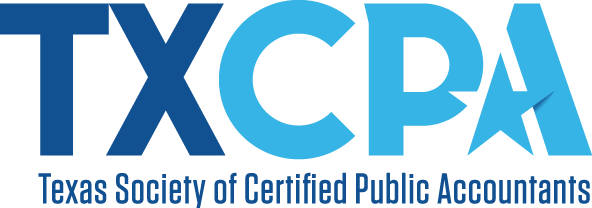
The Texas Society of Tax & Accounting Professionals (TXCPA) is a professional organization dedicated to serving tax and accounting professionals in Texas. It provides members with access to continuing education, networking opportunities, and industry updates. TXCPA focuses on enhancing the skills and knowledge of its members through seminars, webinars, and conferences. Additionally, the society offers resources to help professionals stay current with tax laws and accounting standards. Membership benefits include access to a network of peers, professional development resources, and tools to support the growth and success of tax and accounting practices.


What is the Texas State Board of Public Accountancy?
The board that handles accounting regulations in Texas is the Texas State Board of Public Accountancy (TSBPA). The TSBPA is responsible for licensing Certified Public Accountants (CPAs) and enforcing the rules and regulations governing the practice of public accountancy in Texas. It ensures that individuals and firms meet the standards of professional competence and conduct, administers the CPA exam, and oversees continuing education requirements for CPAs. The board’s mission is to protect the public by ensuring that CPAs adhere to high standards of integrity, competency, and professionalism.
Austin, TX Local Resources
Top Companies in Austin, TX
Dimensional Place, 6300 Bee Cave Rd
Building One
Austin, TX 78746
(512) 306-7400
More About Small Business Accounting in Austin, Texas
Austin, the capital city of Texas, has a population of approximately 1 million residents and is one of the fastest-growing cities in the United States. Known for its vibrant music scene and tech industry, Austin has a youthful and diverse demographic. Around 48% of the population identifies as White, 34% as Hispanic or Latino, 8% as African American, and 7% as Asian. The median age in Austin is roughly 33 years, reflecting a young, dynamic populace attracted by the city’s booming job market and cultural amenities. The presence of the University of Texas at Austin further contributes to the city’s youthful and educated demographic.
Residents of Austin, often referred to as “Austinites,” enjoy a high quality of life marked by a blend of urban and natural attractions. The city is famous for its live music festivals, such as South by Southwest (SXSW) and Austin City Limits (ACL), which draw visitors from around the world. Austinites are known for their active lifestyles, with access to numerous parks, trails, and outdoor activities. The city’s tech industry, often dubbed “Silicon Hills,” has attracted a significant number of professionals and entrepreneurs, making Austin a thriving center for innovation and creativity. This unique blend of culture, education, and industry defines the character of Austin’s residents.
Small business accounting in Austin is essential to the success and sustainability of the city’s vibrant entrepreneurial ecosystem. Austin, known for its thriving tech industry and creative culture, hosts a diverse range of small businesses, from tech startups to local eateries and boutiques. Local accounting firms provide critical services such as bookkeeping, tax preparation, and financial analysis, ensuring that these businesses maintain compliance with state and federal regulations. They also offer strategic financial planning and advisory services, helping business owners manage cash flow, budget effectively, and make informed financial decisions that support long-term growth.
The support network for small businesses in Austin extends beyond traditional accounting services. Organizations like the Austin Small Business Development Program and the Greater Austin Chamber of Commerce offer valuable resources, including workshops, one-on-one mentoring, and financial planning assistance. These programs are designed to enhance the financial literacy and operational efficiency of small business owners. Additionally, Austin’s robust network of investors and access to venture capital provide vital funding opportunities for startups and small enterprises. Effective accounting practices, combined with the city’s supportive business environment, are crucial for the continued innovation and growth of small businesses in Austin.
Small Business Accountant Austin works with small businesses to minimize their tax burden and grow their profits. Offering tax planning and accounting services in the greater Austin area, we work proactively for you. Our clients love our quick response time, fixed fees, and our innovative solutions.
Consult with a Small Business Accountant in Austin Today.









